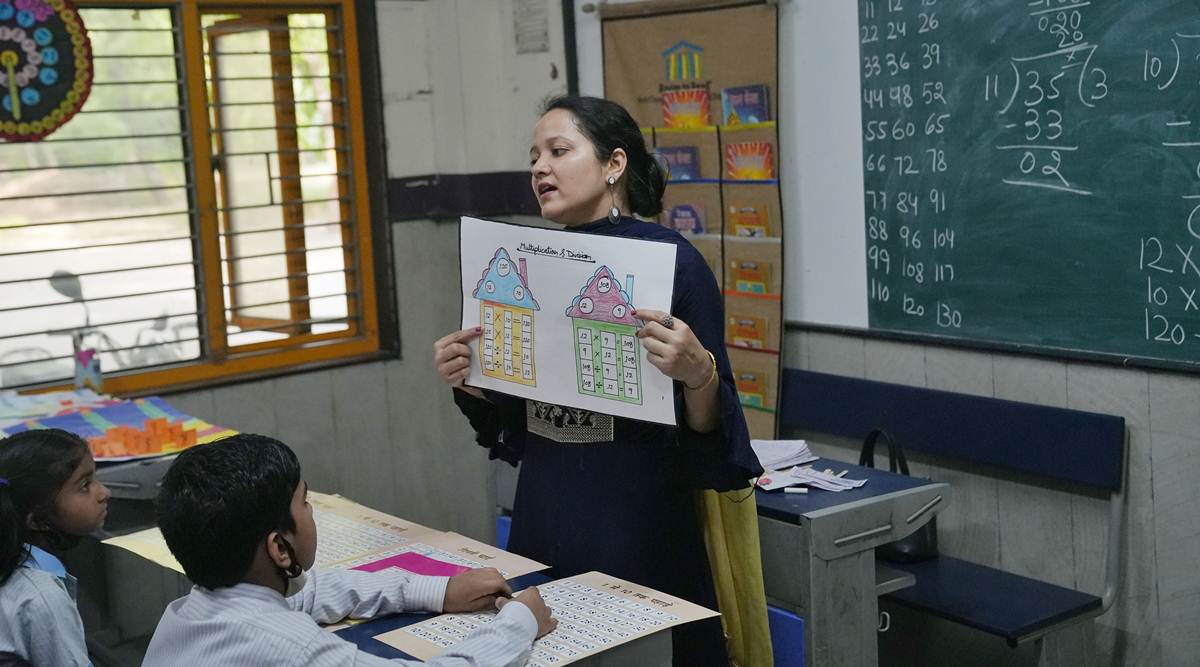Ten days have passed since the Union Education Ministry launched the National Curriculum Framework (NCF) for children across different age groups, including the first-ever such framework for children between the ages of 3 and 8, and it has already generated a lot of discussion amongst educationists and parents.
From welcoming ideas like the emphasis on creative ways of teaching, limited use of textbooks and assessment through observation and analysing creativity to ‘questionable suggestions’ like the use of mother-tongue in classrooms, which experts feel can get problematic in a multi-cultural environment, there is much to talk about.
The “National Curriculum Framework (NCF) for the foundation stage” is expected to be the basis for all pedagogy adopted by schools, pre-schools, and anganwadis for children studying between nursery and Class 2 in institutional setups.
Union Education Minister Dharmendra Pradhan who launched the NCF for the foundation level termed it the “most challenging” and “most responsible” task.
“Research has shown that over 85 per cent of an individual’s brain development occurs by the age of 6-8 years. Therefore, it is very important what children at this young age be taught and how they are being taught,” he said.
Maithili Tambe, CEO, The Academy School (TAS) which became one of the city’s first schools to set up experiential NEP stations for students for hands-on learning, welcomed the NCF. “Firstly, we needed some kind of a regulatory body talking about curriculum and pedagogy in the foundational years, which was missing so far, so in that sense, it is welcome. It acknowledges the importance of learning in the preschool age but at the same time, does not take a myopic view of learning as a pen-paper method. There are several welcome things like creative ways of teaching-learning, emphasis on life and social skills, and focus on brain development and motor skills in children. Even take the assessment, for example, it asks teachers to observe children in their natural setup rather than tests and examinations which means assessment as per what students are doing rather than what we want them to do. Even asking schools not to follow textbooks in early years is good because many schools put a lot of pressure on finishing academics as per a set syllabus on students,” she said.
Agreeing with her, Kajal Chhatija, former school principal and founder of Edudrone who is the academic director of an upcoming chain of pre-schools, said there are several things to celebrate in the NCF.
“The most important part is the emphasis on creativity and hands-on learning. In the traditional systems which are followed by many pre-schools even today, the focus is on writing. They consider it an achievement if children can write numbers and letters and make it a benchmark of the teaching-learning process. But the NCF emphasises that teaching should focus on speaking, listening, following, and imitation. It’s a complete 360 degrees approach which takes into account things like the behavior of students, whether they can engage with children of their peer group which pre-schools often forget in older classes, where focus shifts on academics,” she said.
However, the focus on teaching children in their mother tongue, emphasised by the NCF, is something that has evoked mixed reactions.
“In a classroom, we have children of different backgrounds and sometimes, even nationalities. Between one teacher and 15 pupils, it is not possible to teach only in the mother tongue to all children. Having said that, even today, we customise content as per the child’s needs, adopting multi-lingual teaching so that all children follow, as some may be weak in English so we need to tweak content as per their need. We also need to remember that it is during the foundational years when the brain is sharpest, it is like a sponge, will absorb maximum information. Hence, we actually try to teach as many languages in this age because this is when they learn best,” said Arwa Chunawala, a senior teacher in an international pre-school in Kalyani Nagar.
However, parents feel that a mixed approach is best when it comes to teaching languages in school.
“My child is weak in English because at home we speak in our mother tongue, Gujarati, with each other, grandparents, house help and so on. But in the school, I want the teachers to use English because if not there, where will my son pick up this language? I feel teaching should be done in English, teachers can use mother tongue just to build rapport with students,” said Pooja Shah, a resident of Bibvewadi.
!function(f,b,e,v,n,t,s)
{if(f.fbq)return;n=f.fbq=function(){n.callMethod?
n.callMethod.apply(n,arguments):n.queue.push(arguments)};
if(!f._fbq)f._fbq=n;n.push=n;n.loaded=!0;n.version=’2.0′;
n.queue=[];t=b.createElement(e);t.async=!0;
t.src=v;s=b.getElementsByTagName(e)[0];
s.parentNode.insertBefore(t,s)}(window, document,’script’,
‘https://connect.facebook.net/en_US/fbevents.js’);
fbq(‘init’, ‘444470064056909’);
fbq(‘track’, ‘PageView’);







